Our Products
Our Sustainable Style Finder & Sustainability Glossary will help you learn more about sustainability, learn what makes a style sustainable and help you find the sustainable styles your clients want.
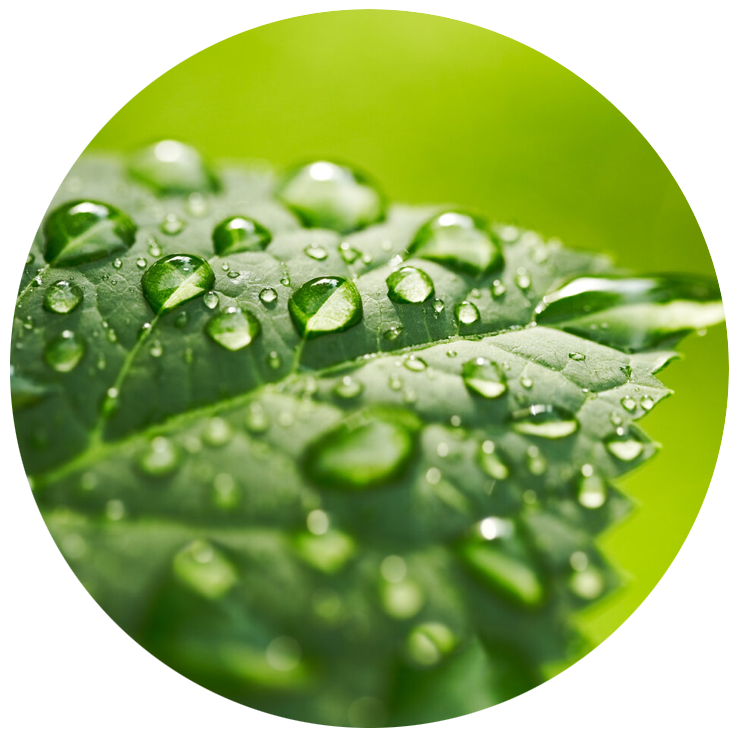
Our Sustainable Style Finder & Sustainability Glossary will help you learn more about sustainability, learn what makes a style sustainable and help you find the sustainable styles your clients want.

Education and awareness are key components of our efforts. We want to help you easily source products to meet your sustainability needs. So, we’ve created a 3-factor method for validating the products in our assortment with accurate & verifiable global sustainable components, sustainable manufacturing practices and a responsible mindset.
Our industry invests considerable resources to maintain and verify product & supply chain safety and socially responsible supply chain practices. In 2020 alphabroder – Prime Line allocated additional resources to examine our sustainability protocols and establish a Corporate “Green Team” initiative. The “Green Team” is a dedicated cross-functional team passionate about all things sustainable.
Our goal is to create a meaningful and measurable Environmental, Social & Governance Corporate platform. We’re identifying the good things we are already doing and improving those current processes. We are researching ways to improve our impact and our industry with a mindset of continuous improvement.
Sustainable Materials, Sustainable Manufacturing and a Responsible Mindset are now searchable filters on alphabroder.com and alphabroder.ca. You can explore by product category or by brand, or all products.
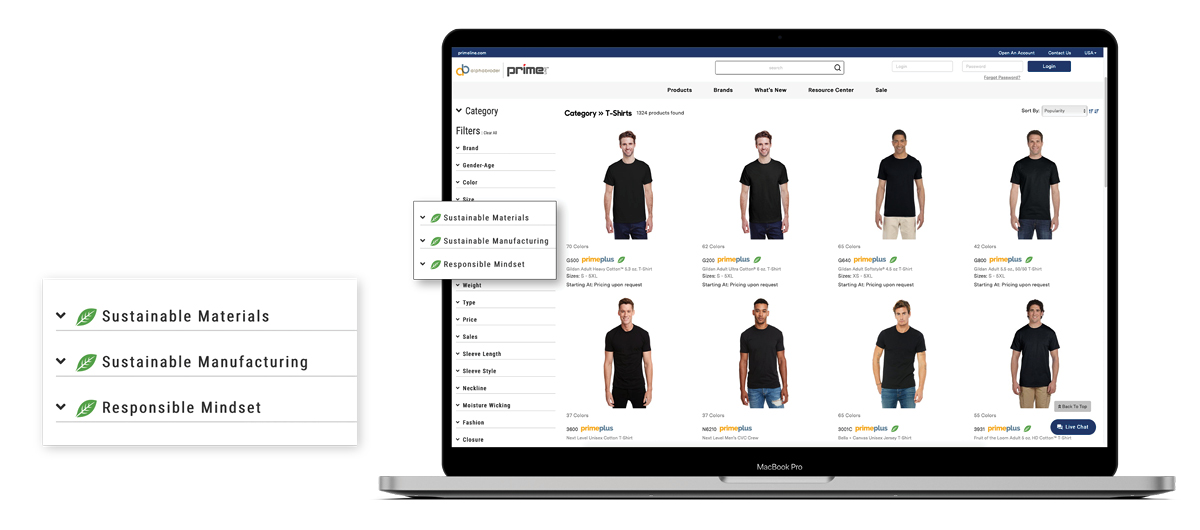
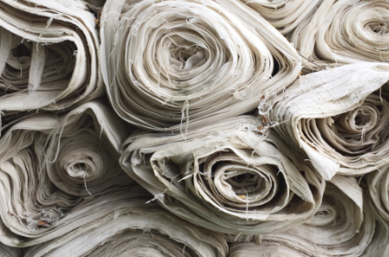
Products made with one or more forms of sustainable, recycled or recyclable fabric or components.
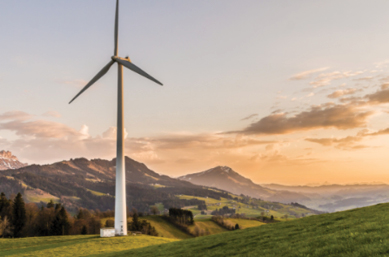
Products made with sustainable practices, such as energy-efficient factories, processes or dyes.
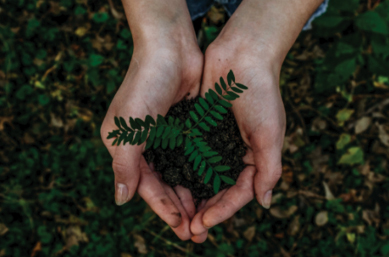
Products that have a “giveback” aspect related to their sale, use or production.
To better help you communicate the distinct attributes of each of these products, we added enhanced product fabric and features information on our website.
Our comprehensive Sustainable Glossary contains information, tools and research ideas to help you on your path to a more sustainable business model.
We look forward to your feedback and your suggestions at greenteam@alphabroder.com.
Materials obtained from renewal resources and which have minimal impact on the environment during their production and recycling are considered sustainable. We’ve included expanded information about some of the sustainable materials in many of our products.
Bamboo is a renewable fast-growing plant that requires little maintenance and has a wide range of applications from textiles to construction materials. It grows without the need for chemicals or fertilizer, and it releases oxygen into the atmosphere. Bamboo is very strong and bamboo fabric is inherently hypoallergenic, anti-static and has antimicrobial properties. There are a range of processes for converting the cellulose plant fiber into fabric, both with chemicals and alternatives.
Capable of decomposing rapidly typically through specialized facilities which create conditions to rapidly decompose biodegradable materials or components.
This support group monitors the complex journey of materials from factory to final product. The bluesign® team includes experts in chemistry and textile production, as well as specialists who oversee a robust system of factory auditing and certification. Companies can request an assessment and if they meet the bluesign® criteria are able to use the bluesign® label on their material or product. The team "bluesign" comes from the name of a Swiss group called bluesign® technologies. To learn more visit: www.bluesign.com/en
Renewable material sourced from bark of cork oak trees. After the cork is harvested from the tree bark it regenerates. The tree not only continues to live after the cork is harvested, it can be harvested approx. every 9-12 years, throughout its life which can be anywhere from 150 to 300 years.
Range of certifications for eco responsible forestry products: from sustainable forest management to chain of custody (sustainability from source through manufacturing). To learn more visit fsc.org/en
Takes the best of various international textile and organic standards throughout the organic fibre life cycle (from growth to harvest, manufacturing to store shelves everything from the raw material, to chemicals, to quality of working conditions), combined into one internationally recognized body. Uses third party verification to promote reliability and trust. To learn more visit global-standard.org/
Voluntary standards for 3rd party sources to verify recycled claims throughout product or material life cycle. Verifies everything from sourcing, harvesting and production. Focus on 5 key textile materials: Organic Cotton, Recycled Polyester, Biosynthetics, (MMCF) Manmade Cellulose Fibers, Animal Fibers and Materials. To learn more visit textileexchange.org/standards/recycled-claim-standard-global-recycled-standard/
Made from fibres found on exterior of the Cannabis Sativa plant. Hemp requires little cultivation, needs significantly less water than cotton to grow, requires no pesticides and produces more fibre than cotton. Hemp growth is also inherently adaptable to a range of climate conditions. It's ideal in crop rotation for its ease at adapting to land used for other purposes before, and leaves nutrients for ease of growing other things after. The raw material can also be used to make bioplastics. Hemp is often combined with other materials such as cotton for a softer feel or to more easily take dye. Raw hemp fibre is also compostable.
Fibre produced from cellulose from eucalyptus tree pulp. Eucalyptus is fast-growing and requires little to no chemicals or irrigation. It can grow on land no longer capable of growing food. The fabrication process requires no toxic chemicals and other agents used in the process are recyclable and create limited emissions. The textile is breathable, easy to dye, and can be mixed with other fabrics for different hand feels and finishes. Considered a sustainable fibre when sourced from sustainably managed forests and transparent supply chains. The fibre is also both recyclable and degradable in waste treatment plants. Tencel ® is a brand name for Lyocell fibres from Lenzing AG Corporation, well known for its commitment to sustainable practices. www.lenzing.com/products/tenceltm
Tracing the use of harmful substances throughout the lifecycle of textiles and leather goods. This label indicates the product is free from harmful substances, and was produced using sustainable manufacturing practices and socially responsible work conditions. They also provide an online directory to search for OEKO-TEX certified products and manufacturers. To Learn more visit www.oeko-tex.com/en/our-standards/made-in-green-by-oeko-tex
Cotton produced without the use of genetically modified seeds in planting, grown without chemicals or pesticides (which helps reduce global warming), harvested and processed using fair labor and work conditions (including energy and emissions). In addition, organic cotton is produced using less water than non-organic cotton. There are a range of global standards and we've included any applicable global standard when provided by our Suppliers.
Non-profit organization focused on helping establish international standards for sustainable forest management. PEFC certified cork campaign in partnership with PEFC Spain helps organizations maintain sustainable cork production and educate the world about cork sustainability. To learn more visit: www.pefc.org
The EPA defines reclaimed materials as "Waste materials and byproducts that have been recovered or diverted from the waste stream for reuse."
The EPA defines recycling as "the process of collecting and processing materials that would otherwise be thrown away as trash and turning them into new products. Recycling can benefit your community, the economy and the environment."
Products can be made of pre- or post-consumer recycled materials or a combination. Pre-consumer means materials recovered in the manufacturing process and re-used in manufacturing. Post-consumer means recyclables collected from consumers or businesses through a recycling program. Recycled water bottles are an example of a post-consumer recycled product.
Material or process that replaces or replenishes itself repeatedly throughout its lifetime.
The EPA defines sustainability as "Everything that we need for our survival and well-being depends, either directly or indirectly, on our natural environment."
Organization that vets organic claims as an objective 3rd party and provides tools for the textile industry to use their findings. Also helps provide organic farmers with access to the larger global market. Note this standard is voluntary. To learn more visit textileexchange.org/standards/organic-content-standard/
Cotton produced with full transparency in supply chain. Emphasis on sustainability and Fair Labor. To learn more visit cottonusa.org/
Durable textile designed to look, feel and wear like leather but made of either petroleum or plant-based materials. Recent trends indicate significant growth in the plant-derived materials.
Sustainable manufacturing (also called sustainable design or green design) is the creation of manufactured products through economically-sound processes that minimize negative environmental impacts while conserving energy and natural resources.
Cotton that is both sourced by farmers using sustainable farming methods and manufactured using sustainable practices. BCI promotes and teaches these sustainable practices worldwide. This method was designed to work on a large scale with the intention becoming a worldwide accepted practice. BCI is also a non-profit organization. To learn more visit bettercotton.org
The total amount of carbon dioxide (CO2) generated and released into the atmosphere as a result of a particular activity, individual, organization or population. Carbon dioxide represents around 80% of total greenhouse gases, according to the US Environmental Protection Agency (EPA).
Equivalent to net-zero emissions or net-zero carbon footprint, refers to a situation where greenhouse gases (GHGs) and CO2 emissions associated with individuals, organizations or whole populations are either balanced by short-term compensatory actions such as carbon offsetting, or eliminated altogether by long-term radical systems change.
The practice of carbon offsetting is a compensatory action that gives office individuals, businesses, and other organizations the option to balance their carbon footprint by purchasing carbon credits (carbon offsets) that fund projects focused at reducing emissions in developing countries.
Technologies associated with things like environmental production, assessment, compliance with environmental regulations, pollution control and prevention, waste management, remediation of contaminated property, design and operation of environmental infrastructure and the provision and delivery of environmental resources. Example: wastewater treatment, recycling, solid waste management, solar panels, and wind turbines
Refers to the amount of energy required to produce goods and provide services.
Refers to the direct effect of socio-economic activities on the environment.
Refers to the actions taken by companies and advocacy groups to ensure that workers' rights, including working hours, health and safety, freedom of association and fair wages, are met across all business operations.
Refers to the release of greenhouse gases (GHG), into the atmosphere. GHGs, such as CO2 and Methane, are any gases that absorb and re-emit heat and therefore keep the planet's atmosphere warmer than it otherwise would be.
An apparel and footwear industry self-assessment standard for assessing environmental and social sustainability throughout the supply chain. It enables brands, retailers, and facilities of all sizes – at every stage in their sustainability journey – to accurately measure and score a company or product's sustainability performance. The HIGG Index measures environmental (energy/greenhouse gas emissions; water; wastewater/effluent; air emissions; waste; and chemicals management) and social impacts across the life cycle of an apparel and footwear product.
The international standard that specifies requirements for an effective environmental management system (EMS). It provides a framework that an organization can follow, rather than establishing environmental performance requirements.
A green building certification program used worldwide that creates standards for developing high performance, sustainable buildings. LEED includes a set of rating systems for the design, construction, operation, and maintenance of green buildings, homes, and neighborhoods which aims to help building owners and operators be environmentally responsible and use resources efficiently.
A product-centered approach to environmental protection that calls on those in the product life cycle (e.g., manufacturers, retailers, users, and disposers) to share responsibility for reducing the environmental impacts of products.
The process of converting waste into a reusable material or return a material to a previous state in a cyclic process.
Resources that can be replenished quickly after use so that they are not permanently diminished or depleted. Renewable energy sources include the sun (solar power), wind, flowing water, and geothermal heat. Renewable material resources include algae, grasses, and some fast-growing trees. Substituting renewable resources for nonrenewable resources (e.g., coal, oil, gasoline, and other fossil fuels) is one of many tenets of sustainability.
A shared business-critical function in which contributing stakeholders (entire supply chain) actively and consciously sources and procures products and services for their operations in an ethical, sustainable and socially conscious way.
Solar power is the conversion of energy from sunlight into electricity, either directly using photovoltaics (PV), directly, or indirectly using concentrated solar power, or a combination.
Refers to the ability to trace products and their components back through each step of the supply chain, all the way to raw materials.
It is the practice of preventing waste by decreasing or eliminating the number of materials initially used.
A recovery process in which waste is incinerated or otherwise turned into steam or electricity, and used to generate heat, light, or power through the process of combustion.
Water use refers to use of water by agriculture, industry, energy production and households.
A system-wide approach that seeks to maximize recycling, minimize waste, reduce consumption, and ensure that products are designed to be reused, repaired, or recycled back into the environment or marketplace.
For more information explore the EPA Glossary of Sustainable Manufacturing Terms
Sustainable practices and materials reduce the carbon footprint associated with their manufacture and also help cut down waste and save energy.
A Responsible Mindset can include designing your business around social corporate responsibility, or in corporate giving to charity, or many other things.
It can also be as simple as creating products designed to reduce use of disposable products, products designed to be easily recycled and products designed to reduce packaging waste.
We want to recognize the actions by brands that have implemented programs and processes that exemplify a Responsible Mindset through give-backs to people, communities and the environment.
1% for the planet is a global movement inspiring businesses and individuals to support environmental solutions through annual memberships and everyday actions. We advise on giving strategies, we certify donations and we amplify the impact of our network. Put simply – we bring people together to increase smart environmental giving.
The B-Rad Foundation exists to support youth and their communities. We foster individual empowerment through environmental stewardship, health, and adventure programs. We believe in the next generation's responsibility to embody these principles and are resolved to make a positive and lasting impact within our communities and for our planet.
Carbon offsets let you help build projects in communities across the country that reduce greenhouse gas (GHG) emissions beyond what you can achieve through individual action. Carbon offsets are purchased to fund these projects and diminish the impact of your own GHG emissions, even though the projects are located elsewhere. Carbon Offsets make environmental and economic sense- for emissions that are impossible to reduce, you can use funds to help reduce emissions elsewhere.
Charitable organization founded in October 2003 to help military children and disabled/wounded veterans. Working every day to assist our U.S. military service connected fallen and/or disabled veterans and their families through hardships they face after losing their loved one or after their loved one is unable to provide financially as they once did prior to their disability.
Fisher House Foundation builds comfort homes where military & veterans' families can stay free of charge, while a loved one is in the hospital. These homes are located at military and VA medical centers around the world.
The mission of Green Story has always been about helping consumers choose the more sustainable and ethical option. We all want to do the right thing, but we need to know, and feel, the positive impact we're making. By providing a simple, credible and flexible impact marketing platform, Green Story is bringing a sustainable way of doing business into the mainstream.
Guide Dogs for the Blind is a nonprofit 501(c)3 organization dedicated to improving quality of life for our clients. By supporting our mission through grants, corporate gifts, sponsorships and partnership programs, you can give people who are blind or low vision the opportunity to experience the freedom, safety and companionship of partnership with a guide dog.
We have four of the best brands in the business, with great styles for every customer need. And now, for every eligible piece of our apparel you purchase from wholesalers for embellishment, the school of your choice will receive a cash rebate of $0.10. To date, we have given more than $1 million to schools.
Whether its Hanes®, ComfortWash®, Alternative®, or Champion® apparel, every garment you order, no matter the client, counts towards our schools.
By acting responsibly, caring for our people and communities, and holding ourselves to the highest ethical standards, we're living up to our core principles and making a difference. As a growing global enterprise with dozens of famous brands and a worldwide network of manufacturing plants, we know we need to be taking bigger and bolder action to minimize our impact on the planet and help our people and communities thrive.
We're building on a long track record of strong social and environmental practices across our teams, operations, and facilities. As we face what's sure to be a decisive decade for the world, we aim to take it to another level – significantly expanding our positive impact on our people, products, supply chains and the global community.
The collection of rainwater from a surface that allows for the rainwater to be stored and used at a later time.
Items made of materials which can be recycled. This means after you're done using them, these items can be collected, broken down and processed into new products. Since every community has different recycling programs, your local recycling facility might not accept all recyclable items. Check first what items your local recycling provider accepts, before placing items in your community's recycling bins.
Items that have less packaging than previously. By changing the packaging of these items we've reduced Prime's packaging material waste by by approx. 17,000 lbs per year.
Item is an alternative for disposable item (for example a Non-Woven grocery bag would replace a single use plastic bag, stainless steel drinking straws would replace plastic straws, lunch box would replace brown paper bag)
Material or process that replaces or replenishes itself repeatedly throughout its life time
Our mission is to empower youth in need to be the reason for change in their lives by instilling them with a positive, indelible self–image. We provide underserved youth living in King County, who are between the ages of 12 and 18, with new clothing and shoes as well as the opportunity to obtain a haircut, all at no cost.
UPS's carbon neutral option supports projects that offset the emissions of the shipment's transport. UPS has supported projects that include reforestation, landfill gas destruction, wastewater treatment, and methane destruction. Our carbon neutral option is verified by Société Générale de Surveillance (SGS), an inspection, testing, and verification company. This means that you can have confidence in the UPS carbon neutral method. Additionally, our carbon offset process is certified by The Carbon Neutral Company
Since 2004, Vail Veterans Program has transformed the lives of military injured and their families through innovative programs that build confidence and life-long relationships. Programs range from the adventurous to the connective, including summer and winter therapeutic recreational programming, caregiver-specific wellness events, and empowerment training.
Vail Veterans Program participants include United States military personnel who have been severely injured while serving our country. Most veterans who participate in our programs come directly from: Walter Reed National Military Medical Center in Bethesda, MD; Brooke Army Medical Center in San Antonio, TX, and the Naval Medical Center in San Diego, CA. Vail Veterans Program events are provided to military injured and their families entirely free of charge
Includes the activities and actions required to manage waste from its inception to its final disposal. This includes the collection, transport, treatment and disposal of waste, together with monitoring and regulation of the waste management process and waste-related laws, technologies, economic mechanisms.
